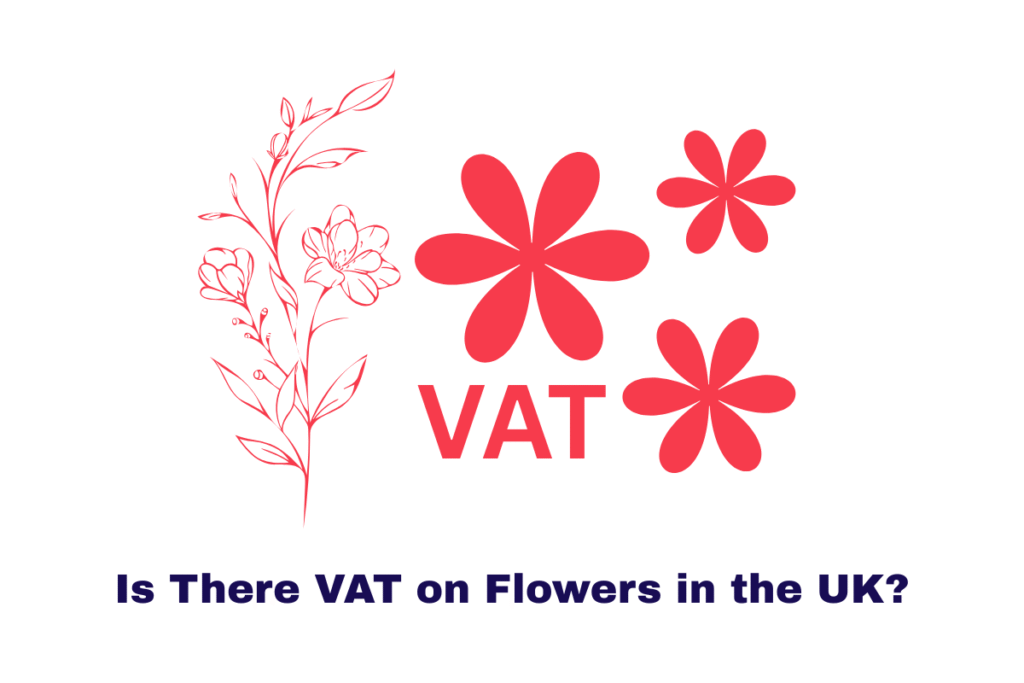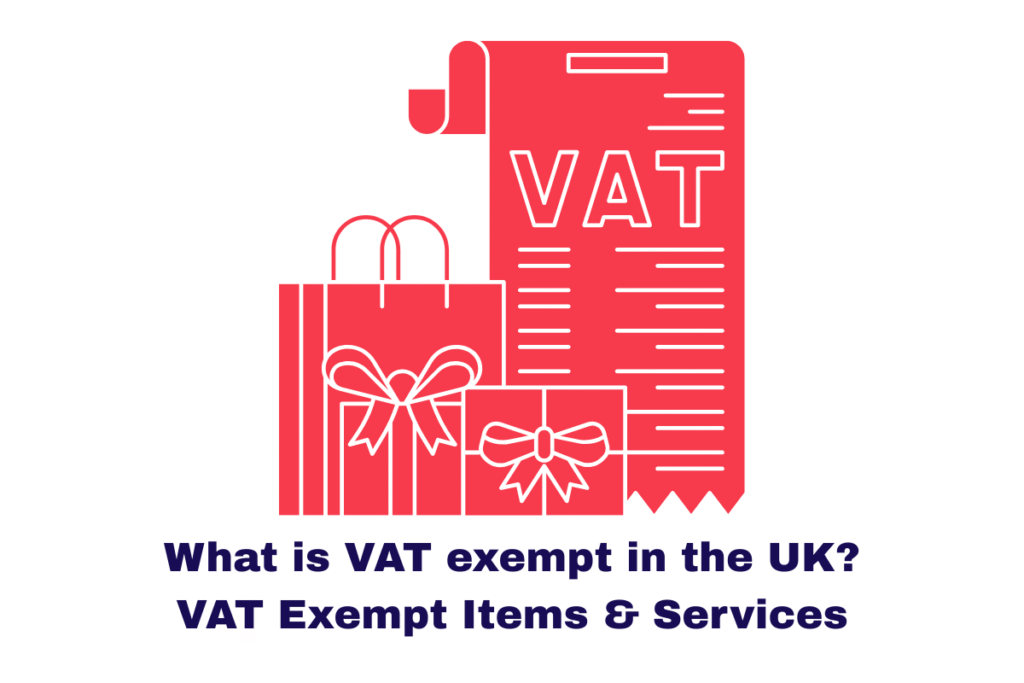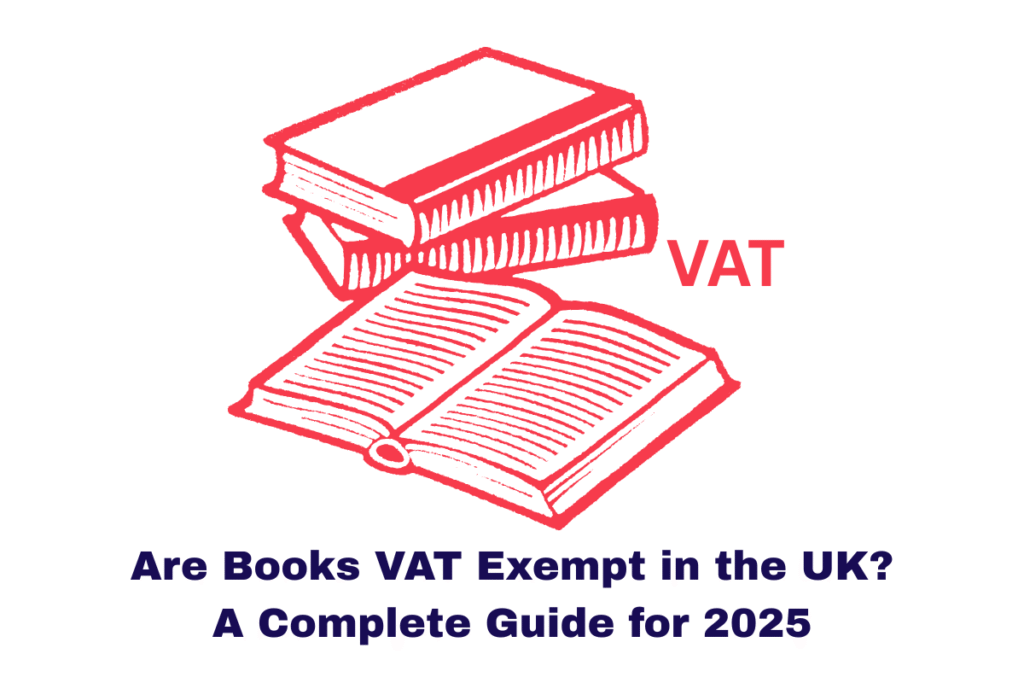When you’re picking up a bouquet for a loved one or planting your garden for the season, the last thing on your mind is tax. However, the topic of VAT on flowers is more complex than most people realise.
From florists and supermarkets to online retailers and wholesalers, understanding how VAT is applied to flowers can save you — or your business — unnecessary costs.
In this guide, we’ll break down everything you need to know about VAT on flowers in the UK, from standard-rated and zero-rated categories to exemptions and edge cases.
Whether you’re a florist, a supplier, or simply a curious consumer, this comprehensive guide will clarify what’s taxed, what’s not, and how to make tax-efficient decisions.
What Is VAT and Why Does It Matter for Flowers?
VAT (Value Added Tax) is a consumption tax levied on goods and services in the UK. As of 2025, the standard VAT rate remains 20%. Most consumer purchases, including flowers, are subject to this rate — but there are exceptions.
Understanding VAT on flowers is essential because different types of flowers and the reasons for their sale can determine whether they’re standard-rated, zero-rated, or even exempt.
📚 Official HMRC VAT Notice 701/38 provides full guidance on plants and flowers and their VAT treatment.
Standard-Rated Flowers: When 20% VAT Applies
Most ornamental flowers and plants are classified as standard-rated under UK VAT legislation. This includes:
- Cut flowers such as roses, lilies, and tulips
- Ornamental houseplants and decorative potted plants
- Bulbs and seeds sold primarily for ornamental purposes
- Flower arrangements and bouquets for events (weddings, funerals, etc.)
Read Our more Detailed Guides on VAT:
What is VAT and How VAT Works?
What is VAT Exempt in the UK: All VAT Exempt Items
Are Books VAT Exempt in the UK? A Complete Guide for 2025
Is VAT Chargeable on Alcohol in the UK?
Why Are These Flowers Standard-Rated?
According to HMRC, if a flower or plant is not intended for food production or another exempt category (such as education or charity), then it falls under standard VAT rules. Retailers must charge 20% VAT on these items at the point of sale.
Zero-Rated Flowers: Not All Blooms Are Taxable
While VAT on flowers often means a 20% rate, certain plants and flowers are zero-rated, especially if they’re intended for food production. These include:
- Edible flowers such as nasturtiums, pansies, and violas
- Herbs like basil, thyme, mint, and rosemary
- Seeds and bulbs for growing edible plants or herbs
- Fruit trees and vegetable plants (e.g. tomato plants, apple trees)
Examples from HMRC:
As per HMRC VAT Notice 701/38, a packet of coriander seeds is zero-rated, while a pot of flowering orchids is standard-rated.
VAT Exemptions: Special Cases to Know
There are also exemptions where VAT may not apply even though the product is usually standard-rated. These exemptions are based on the end-use of the flowers and the type of buyer.
1. Charitable Purposes
If a charity purchases flowers for fundraising events or as donations, these can be VAT-exempt. This includes sales from or to charitable organisations, under certain conditions.
2. Educational Purposes
Flowers used in schools, colleges, or universities for science or horticulture projects may qualify for VAT exemption.
3. Religious Use
Flowers purchased for churches or religious ceremonies (weddings, altars, etc.) may fall under special VAT treatment. The exemption applies if the flowers are used for direct religious purposes and the buyer qualifies.
🧾 Always keep documentation proving the purpose to justify exemptions when audited by HMRC.
Special Cases: When VAT Rates Might Vary
Some scenarios don’t fit neatly into standard or zero-rated categories. Here are a few examples:
1. Plant-Growing Kits
If a kit includes seeds (zero-rated) and decorative elements (standard-rated), VAT is usually charged at the standard rate, unless the zero-rated part dominates the value.
2. Mushroom Kits
Mushroom kits sold in basic packaging (like cardboard boxes) and intended for home food production are zero-rated.
3. Mixed Hampers or Gift Sets
When flowers are sold alongside food, wine, or candles, the entire package might be standard-rated, even if some contents qualify for zero-rating.
Factors That Influence VAT on Flowers
Understanding VAT on flowers isn’t just about the product — it’s also about the context in which the product is sold. Here are some influencing factors:
✅ Type of Product
Ornamental = Standard-rated
Edible = Zero-rated
✅ Point of Sale
Buying from a florist or garden centre usually includes VAT. Buying directly from a farmer or grower may involve different VAT implications.
✅ Purpose of Purchase
Commercial resale, charity fundraising, religious ceremonies, or education may all affect VAT treatment.
✅ Delivery Services
When buying flowers online, delivery charges are taxed at the same VAT rate as the flowers themselves — usually 20%.
Recent VAT Updates and Changes
As of 2025, no major changes have been made specifically affecting VAT on flowers, but VAT legislation can change with annual budgets and finance bills. Always check:
- Gov.uk VAT Rates Page
- HMRC Updates
Why It Matters for Florists and Consumers
If you’re running a flower shop, garden centre, or selling plants online, proper VAT classification ensures you don’t:
- Overcharge customers
- Underpay HMRC
- Miss out on input VAT claims
And as a consumer, understanding VAT on flowers helps you know where your money goes — especially during big purchases like weddings, funerals, or seasonal events.
Helpful Tools for Taxpayers
When making business decisions or working out your tax liabilities, try using our calculators:
✅ Bonus Tax Calculator – Find out how much tax you’ll pay on your bonus.
✅ Dividend Calculator – Ideal for company directors and shareholders.
✅ Listen to Taxman Calculator – Get a full breakdown of your salary, tax, NI, and take-home pay.
Final Thoughts: Understanding VAT on Flowers Pays Off
So, is there VAT on flowers? Yes — but not always. While most decorative flowers and potted plants are subject to 20% VAT, edible flowers, herbs, and certain use-cases like education or charity may qualify for zero-rating or exemptions.
Understanding these rules can save you money, help you comply with HMRC regulations, and empower you to make smarter buying and selling decisions. As VAT laws evolve, staying informed ensures you stay compliant and financially savvy.
Still Unsure About VAT on Flowers?
Contact our expert team of tax advisors at taxcalculatorsuk.co.uk. We’re here to help you understand complex VAT rules, so you can focus on growing your business or enjoying your flowers — stress-free.
Explore Our Tax Calculators
Salary Tax Calculator
Reverse Tax Calculator
Tax Calculator UK
VAT Calculator
Bonus Tax Calculator
Simple Interest Calculator
Payslip Calculator
The content provided on TaxCalculatorsUK, including our blog and articles, is for general informational purposes only and does not constitute financial, accounting, or legal advice.
You can also visit HMRC’s official website for more in-depth information about the topic.




